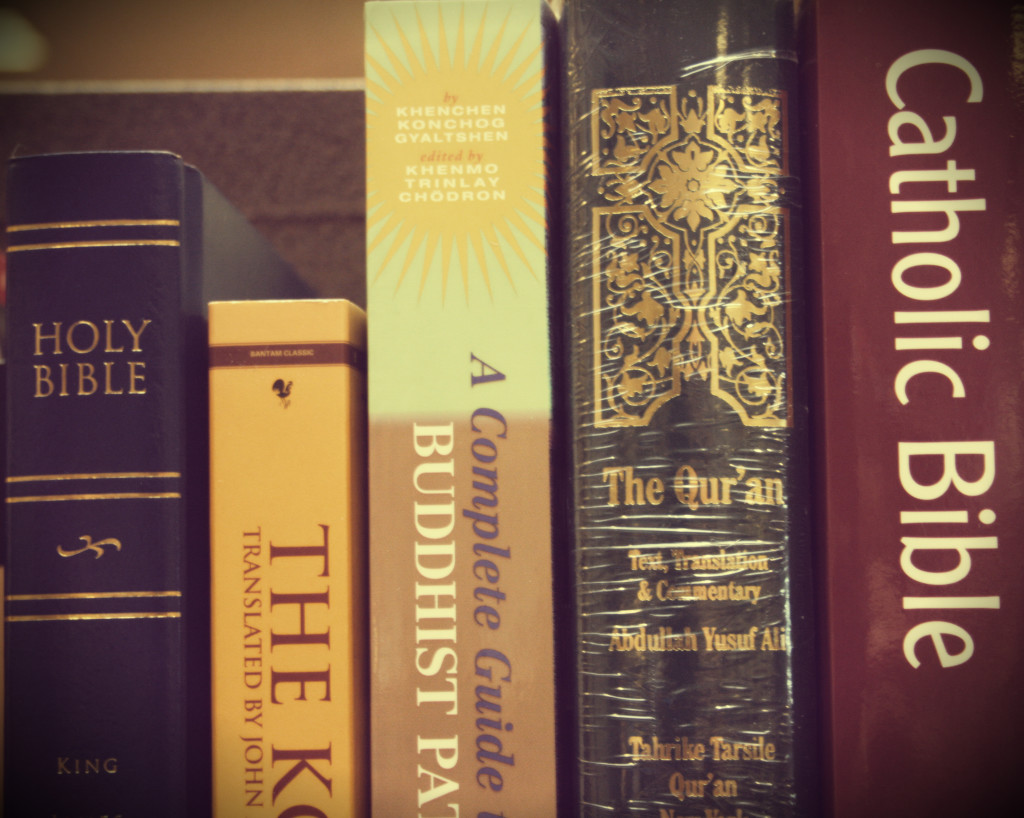Growing up, religion was never something I questioned. When my mother told me I was Muslim, because she and my father were Muslim, I didn’t question it. I told everyone that I was Muslim without hesitation. This usually meant the other kids thought I was the weird kid who couldn’t eat bacon. What being Muslim meant to me, however, was doing everything in my power to prevent going to hell. My parents very effectively and efficiently instilled the fear of God in me: I said a prayer before meals, after eating, every night before bed… I never dared to think of religion as a choice; it was simply what I was born into.
Then I hit high school and the angsty teenager in me started questioning my parents. I became that stereotypical punk kid with the stereotypical rebellious attitude. I disobeyed my parents, stayed out late, and listened to loud music about how The Man was keeping me down. My religion, however, was still unquestioned until senior year of high school and—like many life-changing stories—it involved a girl. I’d had a crush on this girl all year, and we had just started dating, I was excited to bring her home and introduce her to my family so one day after school I invited her over to play some video games in my room. About five minutes after we started playing Rock Band my mother called me into the living room and asked why there was a girl in my room. When I told her about my new girlfriend she was furious. While my girlfriend was waiting for me in my room my mother proceeded to shout at me in Arabic about how she had raised a sinner and how I was forsaking God. I’d had a crush on this girl for the better part of a year because of what a genuinely good person she was and my mom completely denounced her without even meeting her. This was the first moment I started questioning my parents about religion. My whole life I had been told never to judge anyone and here she was shouting at me about my girlfriend’s terrible character based completely on her gender. It all seemed extremely hypocritical to me at the time and that made me reflect on all of the other ideas I’d been taught about religion.
I was conflicted for a couple of weeks. I didn’t understand how dating someone was such a crime against the creator of the entire universe. Then, after those weeks of thought, I decided that I was going to do something absolutely crazy. One day I went to school like I always did, but when lunch time rolled around, I walked to the cafeteria and ordered the one classic school lunch that I was never able to try: I ordered a slice of pepperoni pizza. In a single decisive moment, I took a bite into this pizza topped with sin and I waited for God to smite me.
But the smiting never happened. That was the day that I stopped being Muslim. It was the best pepperoni pizza that I have ever had.
I may have stopped being a Muslim that day, but my religious journey was far from an end. For a couple of years after that moment, I identified as an atheist with a staunch disbelief in God. I was basically a jerk to every religious person I met. I thought I had it all figured out. Of course I didn’t, and I still don’t, but that didn’t stop me from sitting on an anti-religious high horse. I still haven’t been able to tell my parents about my absence of religion. But religion, or the lack of it, became a consuming part of my thought process—probably because I was still coping with an ingrained part of my life coming to an abrupt halt—and I, for some reason, decided I should tell everyone else what they should think.
Eventually, however, I grew out of that as well. I realized that I have no right to force my beliefs onto anyone the same way my parents did on me.
These days, I don’t even identify as an atheist. In fact, I don’t really identify as anything. I’ve had a long transformation on the path to my current (non)belief system, and my ideology will probably keep changing as that path continues. After 23 years of life, the only thing I’ve learned about religion is that I don’t know anything about it. For all I know Zeus and all of his godly acquaintances are sitting in Olympus and using the human race for their amusement.
The only thing of which I can be certain when it comes to religion is that I will never know anything, and at this moment, that feels kind of enlightening.
